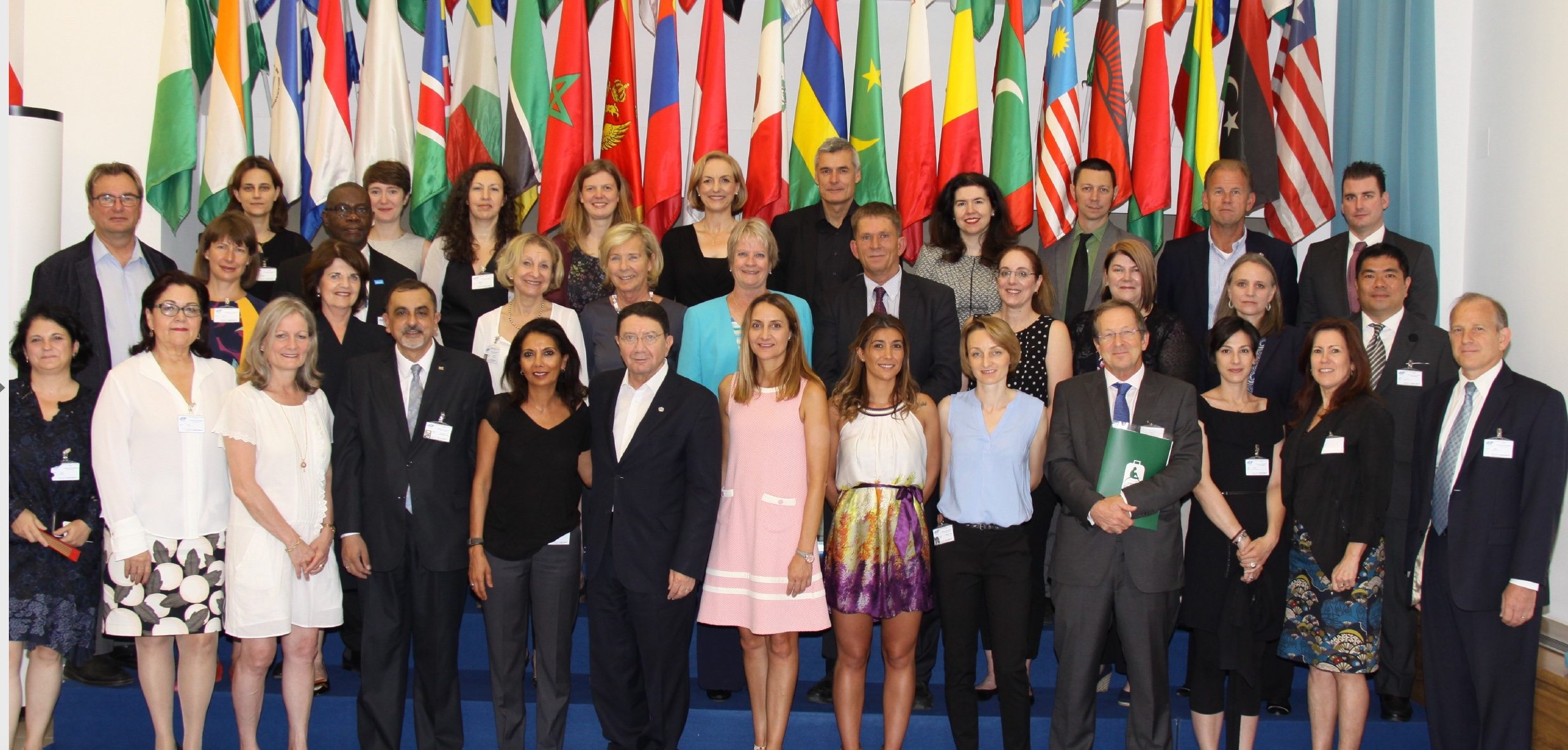
Leaders unite to stop global sexual exploitation of children through travel and tourism
A combination of weak child protection systems, cheap international travel, and growing access to the internet is thwarting efforts to counter the sexual exploitation of children in the travel and tourism industries, a conference on the issue in Madrid this week concluded.
Hosted by the United Nations World Tourism Organization (UNWTO), the meeting of international experts and officials was supported by the government of The Netherlands, UNICEF, the Global Partnership to End Violence against Children, ECPAT International and the High Level Task Force for the Global Study on Sexual Exploitation of Children in Travel and Tourism. Najat Maalla M’jid is the Chair of this Taskforce, which guided the development of the Global Study, and she set the scene for the meeting by stridently declaring, “Sexual exploitation in travel and tourism has a child’s face. No country is untouched by this phenomenon and no child is immune. In this International Year of Sustainable Tourism for Development, let us place children’s right to protection from violence and exploitation at the heart of our actions,”
“We cannot build the responsible and sustainable tourism sector that we seek without protecting the most vulnerable in our societies. To do so we need effective tools and a global commitment” said UNWTO Secretary-General, Taleb Rifai.
Delegates heard that the rise of the Internet and informal operators as well as greater access to cheap international travel have expanded demand and heightened the risk of children beng sexually exploited. At the same time, grinding poverty and lack of education – combined with the continued neglect of child protection systems – have fuelled the supply of children.
In addition, a chronic lack of robust data is allowing offenders to commit their crimes in the shadows and with impunity, while the capacity to respond internationally and nationally is being outpaced.
The UNWTO is expected to ask its General Assembly to approve a new international convention on sustainable tourism in September, with the inclusion of provisions for the protection of children.
The Special Rapporteur on the sale of children and sexual exploitation of children, Maud de Boer Buquicchio, called for, “Child protection to be placed at the core of tourism development strategies.”
UNICEF – a global leader in child protection – emphasised the need for coordinated action. “All of us — from families and governments…to hotel workers, taxi drivers and airline staff…to tour operators and telecommunications companies…to police forces…to UN agencies and NGOs — we all have a responsibility to do all we can to end this monstrous violation of children’s rights…children’s safety…and children’s futures,” said UNICEF Executive Director, Anthony Lake. “It’s everybody’s business to end the business of children being exploited and abused.”
Interpol is releasing improved tools to significantly reduce the possibilities for known sex offenders travelling unnoticed internationally.
Peter van Dalen, from Interpol’s Organized & Emerging Crime Directorate, based in Lyon said, “Anonymity protects traveling sex offenders, and INTERPOL is working with countries to deprive known sex offenders’ of their anonymity, through mechanisms such as an international warning system sharing information across borders about convicted sex offenders, as well as an international vetting system for job applicants applying to working with children.”
The private sector has been closely involved, motivated by the need to combat practices that can seriously affect their reputation and their revenue. ECPAT International is calling for travel and tourism operators to join the “The Code,” a travel industry initiative to stop sexual exploitation of children. Some of the largest players in travel are members.
Head of CSR for RIU hotels – which is a member of The Code – Catalina Alemany-Sorrell championed the commitment of the family owned international hotel chain, “Large companies in the tourism and travel industry have a greater responsibility to the communities where we operate, precisely because of our capacity for influence and transformation. For this reason, we need our commitments to send signals to society that this problem will not be tolerated and that above all, we will fight for a world where children are free from abuse.“
The challenge now is to expand coordinated action to implement the recommendations of last year’s study which called for law enforcement, the private sector and civil society organizations to work together.
The Special Representative of the UN Secretary-General, Marta Santos Pais, encouraged strong linkages with global processes, saying: “The 2030 Agenda for Sustainable Development presents a unique opportunity to reverse this pattern and make all forms of violence against children part of our distant past.
